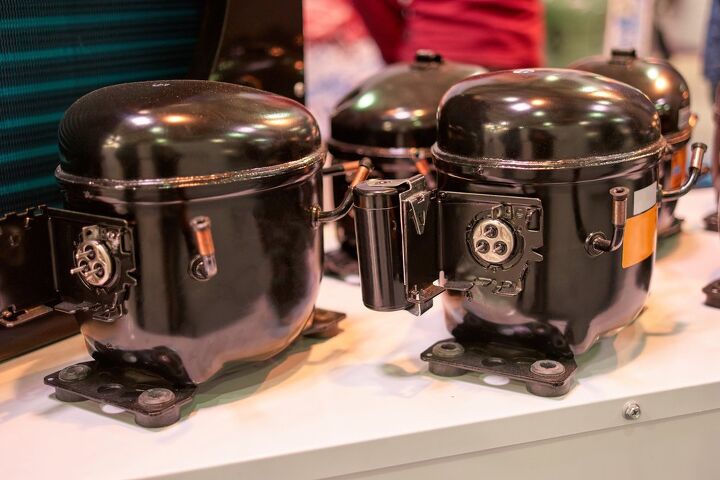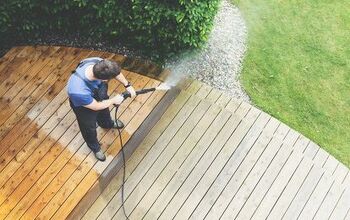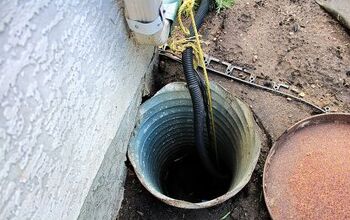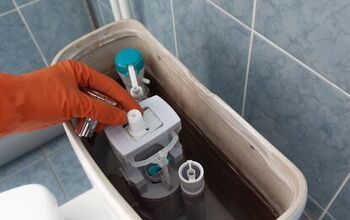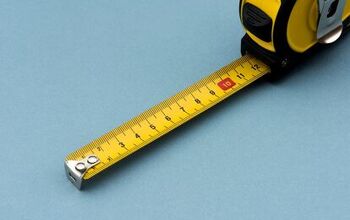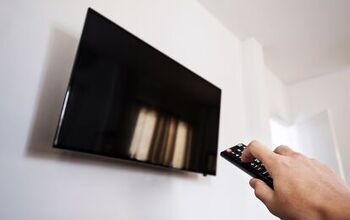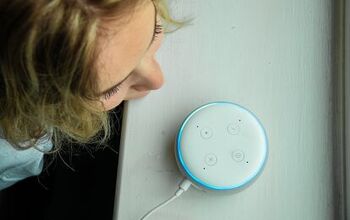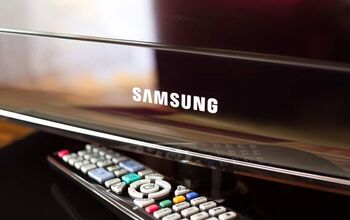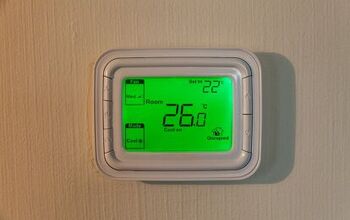Refrigerator Compressor Rattles When Shutting Off? (We Have A Fix)

The refrigerator is a fixture in just about every home and yet, many of us hardly notice its presence. The background hum of the refrigerator is simply something that’s become a part of your home environment.
However, there may be times when the refrigerator does something unusual. Its compressor in particular may produce new noises.
Your refrigerator’s compressor can rattle when you shut it off if there is debris in the fan blades. A misplaced drain pan can also cause the compressor to rattle while shutting off. Refrigerator compressors almost always rattle during operation or when they shut off if it knocks against the housing, and that is normal.
Do You Need Appliance Installation or Replacement?
Get free, zero-commitment quotes from pro contractors near you.

What Is the Refrigerator Compressor?
The compressor installed on your refrigerator is arguably the most important component of that appliance. The compressor acts as a pump inside the refrigerator. When it’s working properly, the compressor pulls in air and pressurizes the liquid refrigerant.
Pressurizing the liquid refrigerant is key because that turns it into a gas. That gas is then passed through coils along the outside of the refrigerator. Those coils work to cool down the gas until the point where it turns back into a liquid.
From there, the newly formed liquid passes through an expansion valve which turns it into a mist. Now, that mist evaporates as it passes some freezing coils and becomes a liquefied gas. Throughout that time, that liquefied gas is also absorbing heat from inside the refrigerator.
Eventually, that liquefied gas will reach the compressor again and the cycle begins anew. The refrigerator relies on that process to cool down its contents. It obviously cannot be completed if your refrigerator’s compressor is not working like it’s supposed to.
Why Is the Refrigerator Compressor Making a Lot of Noise?
We want to mention right away that a refrigerator compressor producing rattling noises is perfectly normal. You don’t have to be concerned even if you hear those rattling noises coming from your refrigerator.
Considering how much work a refrigerator compressor does, the fact that it gets noisy from time to time is not surprising. Still, there’s a difference between normal rattling noises and noises that should give you pause.
The difference between normal noises and concerning noises is their intensity. Normal rattling noises can be ignored for the most part, but the louder ones are very disruptive.
You should probably be thankful too that the concerning noises are as loud as they are. They’re letting you know that there’s something wrong with your refrigerator’s compressor and you must do something about that.
How Should You Address the Rattling Noises Coming from Your Refrigerator?
Before you take any kind of action regarding your refrigerator, you first have to determine what the problem truly is. Yes, it’s possible that the rattling noises are caused by the compressor, but there are other possible explanations too.
For instance, the noises could be ringing out because you haven’t done a good maintaining your refrigerator.
The blades of your refrigerator’s condenser fan may be coated in thick layers of dirt and debris. They can contribute to rattling noises if that’s the case. Clean the blades and see if the noises still persist.
Something could also be wrong with your refrigerator’s defrost timer and that could lead to rattling. You will likely have to replace the defrost timer to resolve that issue.
The rattling noises could also be caused by something being out of place inside your refrigerator. A drain pan you failed to return to its original position could start to rattle. Rattling noises may also start to become an issue if the supports supposed to hold the drain pan are damaged.
If you didn’t spot an issue with those other components of your refrigerator, then the compressor is the likely problem. Addressing that problem could prove costly.
How Do You Resolve a Problem with the Refrigerator Compressor?
Fixing a problem related to the compressor is not like addressing issues involving the condenser or start relay. There is no easy fix for you to attempt here.
You only have three options to consider moving forward.
The first option is simply trying to endure the rattling noises. You cannot really do anything to stop the noises, but it’s possible that your refrigerator is still fully functional despite them. If you can withstand the noises, you can put off taking any other action until the compressor stops working altogether.
The next option you can consider is to replace the compressor itself. Do note however that replacing the refrigerator’s compressor can be very expensive. According to Home Advisor, new compressors have prices in the range of $50 to $300. That’s not the only expense you have to worry about though.
Replacing the compressor inside the refrigerator will also require enlisting the help of a professional. You may have to pay as much as $150 for labor, bringing the total cost of compressor replacement up to $450.
Your last option if you’re dealing with a broken compressor is to purchase a new refrigerator. This option is preferable if your refrigerator is already on the older side anyway. At that point, paying for a replacement compressor may no longer make that much sense financially.
What Are the Causes of Refrigerator Compressor Issues?
Refrigerator compressors don’t break down randomly. Listed below are some of the possible reasons why your refrigerator’s compressor has broken.
Wear and Tear
Compressors can keep going for years with proper maintenance. Over time though, they can succumb to wear and tear just like many other appliances do. You cannot really do anything about your compressor breaking down due to age. Replacing the compressor or the fridge itself will have to be considered.
Inadequate Lubrication
Many refrigerators found in homes today make use of oil to keep the compressor lubricated. The oil enables the compressor and other metal components to operate smoothly. With no oil flowing through the compressor, it can get damaged faster. Your refrigerator could stop working properly soon after that.
You don’t have to change the lubricant inside your refrigerator regularly. However, if the unit sustains significant damage, the lubricant may start leaking out. Replacing the lubricant may not suffice at that point and it may be smarter to purchase a new refrigerator.
Excessive Heat
Compressors may also stop working properly if they are routinely subjected to high temperatures. If your refrigerator is located inside a hot room with poor ventilation, it will likely be affected by the heat.
The compressor may also overheat if some of the refrigerator’s other components are broken. Plugging the fridge into the wrong electrical outlet could also lead to its components getting way too hot.
Foreign Substances in the Compressor
The environment surrounding the refrigerator’s compressor must remain enclosed at all times to keep foreign substances at bay. If those foreign substances find a way into the compressor, they can cause serious damage.
Improper maintenance can lead to those substances ending up where they shouldn’t be. Accidents can also lead to the creation of openings. Those openings may then allow the foreign substances to disrupt the compressor.
Do You Need Appliance Installation or Replacement?
Get free, zero-commitment quotes from pro contractors near you.

Related Questions
What Are the Other Symptoms of a Faulty Refrigerator Compressor?
Apart from the rattling noises, there are other ways to tell if something is wrong with your refrigerator’s compressor.For instance, you may have noticed that the contents of your refrigerator are not as cold as they should be. You may be tempted to chalk that up as nothing of note, but it could be symptomatic of a real problem. If your refrigerator isn’t cooling, you could have a whole new slew of issues.Try placing a glass of water inside your refrigerator, leave it for a couple of hours and check its temperature later. If the water in the glass has not gotten cold, you probably have a broken compressor on your hands.The fan responsible for moving the liquefied gas throughout the refrigerator may also stop working. You can listen closely to the refrigerator to check if the fan is still moving. The compressor fan no longer functioning as expected can also lead to the production of weird noises.One more thing worth noting here is that the compressor may not turn on if there’s an issue with the refrigerator. You can usually hear the compressor coming alive if you’re close to the refrigerator so the lack of noise is troubling.The only good news here is that the compressor not turning on could be explained by a faulty start relay. You can fix the relay without having to replace the compressor.
Will Resetting Your Refrigerator’s Compressor Help?
Resetting your refrigerator’s compressor won’t do anything to fix it. What it can do instead is tell you if the compressor is truly busted.The process of resetting the compress is pretty simple. You have to unplug the fridge, turn everything down to zero, plug it back in, and dial everything back to normal. Check back in a day later to see if the refrigerator’s contents have gotten colder.If there is no change in temperature, your compressor is most likely broken.

We are a team of passionate homeowners, home improvement pros, and DIY enthusiasts who enjoy sharing home improvement, housekeeping, decorating, and more with other homeowners! Whether you're looking for a step-by-step guide on fixing an appliance or the cost of installing a fence, we've here to help.
More by Upgraded Home Team



